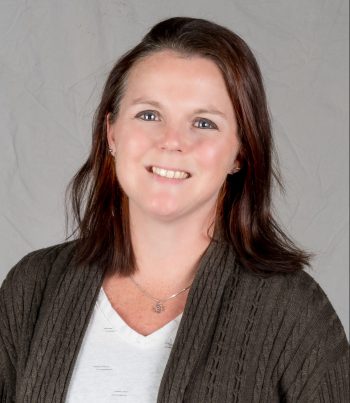Home / News & Events / depression /
Centerstone to Host “Caring for the Caregiver”

Centerstone will host the Caring for the Caregiver: Compassion Fatigue and Vicarious Trauma presentation on March 21 from 1-4:00 p.m. at Centerstone, 2311 South Illinois Avenue, Room 116, Carbondale, IL.
Centerstone Family Services Clinical Manager Niki Grajewski, LCSW, LPHA, will expand participants’ understanding of compassion fatigue and vicarious trauma and how both affect the body and mind.
“Working in any profession where an individual is either caring for others in some capacity – be that a teacher, social worker, nurse, or caregiver – can sometimes come at a personal price. Oftentimes those who work in the helping profession eventually ask the question, ‘But who is going to help me?’” said Grajewski. “Helping people through our work by providing personal care, listening to their stories, helping them manage emotions, navigate through a traumatic experience – while we do these things because we love to see others triumph, doing so day in and day out can be emotionally and physically exhausting.”
Compassion fatigue can result from the constant demands of caring for others or the desire for professionals to give to others in some way, Grajewski said.
“In other words, people can lose their zest for caring for others. The passion that drove us to our work for helping people is diminished,” Grajewski said.
Vicarious trauma results from the same constant pressure that caring for others has on the body and mind, but goes a step further and can result in the helper actually experiencing physical and mental effects of trauma, according to Grajewski.
“Of course, for those in the helping profession, reaching the point of vicarious trauma or compassion fatigue will impede us in our mission of helping those around us to achieve overall wellness and success,” Grajewski said. “Learning about both and creating action steps to care for the caregiver in hopes of preventing either compassion fatigue or vicarious trauma are imperative for those in helping professions. It will help maintain that zest for making other’s lives better that drove us to the work we do in the first place.”
Compassion fatigue and vicarious trauma can affect the helping professional’s body and mind in the same manners that a traumatic event can.
“For example, physical effects can include feelings of exhaustion, or restlessness. It can result in the helper resorting to coping skills that can have negative effects on the body: smoking, excessive substance use, overeating,” Grajewski said. “ The effects on the mind may depend on the helper’s own personal experience and nature of their job, but could include the development of lack of hope, lack of trust in others, nightmares, fear of people, places, things, etc.”
During this presentation, participants will develop an understanding of how working with individuals who have experienced trauma affects professionals.
“When you absorb the stressful events of others, as in vicarious trauma, or experience stressful events over and over again through the work that we do, the effects can greatly impair our ability to do our jobs well. That is why it is so important for us to take care of ourselves as helpers,” Grajewski said. “If you are working with a stressed-out mind and body, this is affecting how your brain is operating on a daily basis. In order to be fully present for those we serve and assist, and to ensure we are in a sound place to perform our work, it is imperative for us to take care of ourselves. We will think more clearly, make better decisions, and enjoy the work we do much more. In some ways, we also will be acting as examples for those we serve in how to take care of both our body and mind, thus making us more capable to assist people with their daily needs.”
During this presentation, participants will also develop an understanding of self-care practices to decrease compassion fatigue.
“Self-care practices to decrease compassion fatigue can include the ‘every day’ health practices we hear about and see about in media, from our doctor, or learned in school,” Grajewski said. “Ensuring we are eating a healthy diet, getting sound sleep, and engaging in regular exercise are good places to start. Beyond that, finding ways to take care of our mind is also important when combating compassion fatigue.
“Stress management through meditation, exercise, coping skills, etc. can be helpful. Taking time for yourself in whatever way brings you joy – walking, drawing, reading, crafting, etc. Self – care is really individualized for each person, but should assist with a professional feeling more relaxed, fulfilled, and ready to take the day.”
This presentation is open to anyone, but seats are limited to 25. Register is required.
“In my work in the helping profession, I have heard phrases like these many times: ‘How can I assist others when I can’t even help myself,’ ‘I am so tired, I just don’t care anymore,’ and ‘I think about my clients all day every day.’ The work we do can be difficult at times. I also have seen that when we make the effort, and become dedicated to taking the time to give ourselves what we often prescribe to those we serve, we can become more joyful, patient, fulfilled helping professionals,” Grajewski said. “We all enter our respective fields for a reason, often from our own personal experiences that drive us to make a difference in the world around us. To truly do justice to those we encounter every day, we have to strive to be at our best. Finding ways to care for the caregiver is imperative in being able to do that.”
By attending, LPC, LCPC, LSW and LCSW licensed staff members will be eligible for CEUs. Attendees without these licenses will receive a certificate of attendance.
Contact Janette Heath or call (618) 462-2331, ext. 1735 or for more information.


